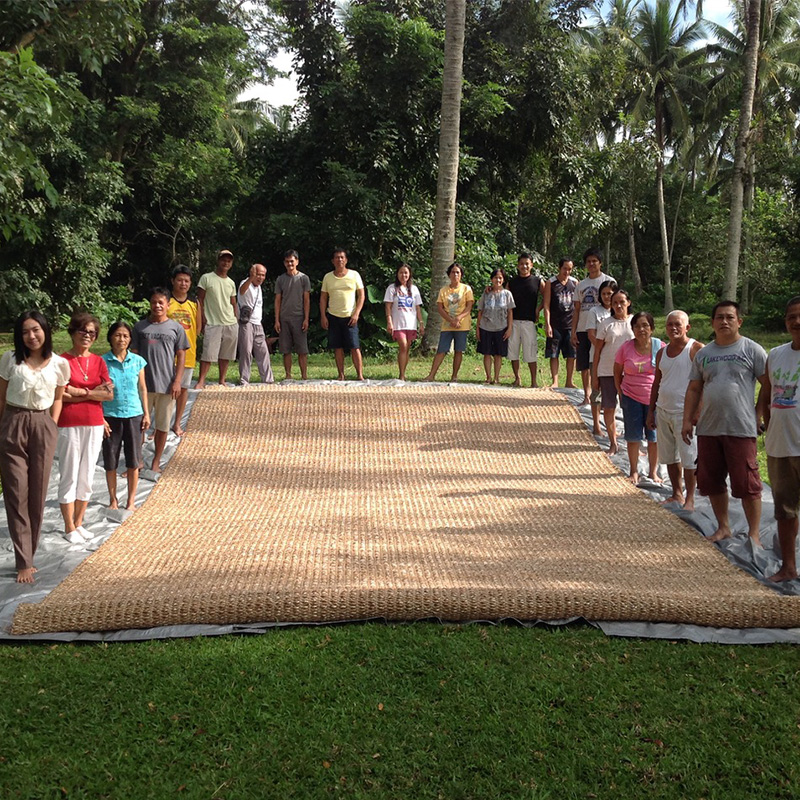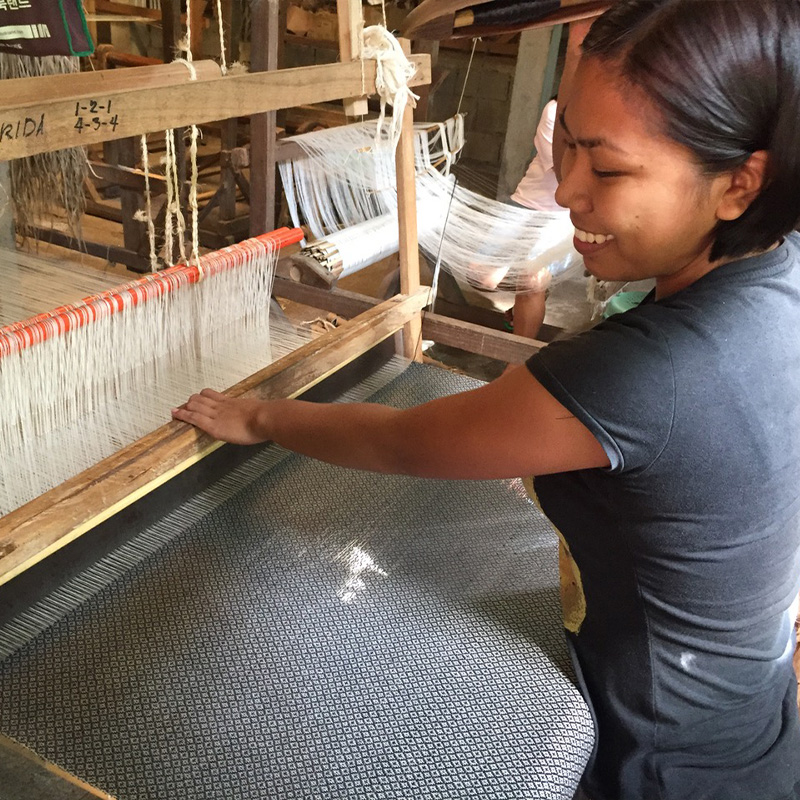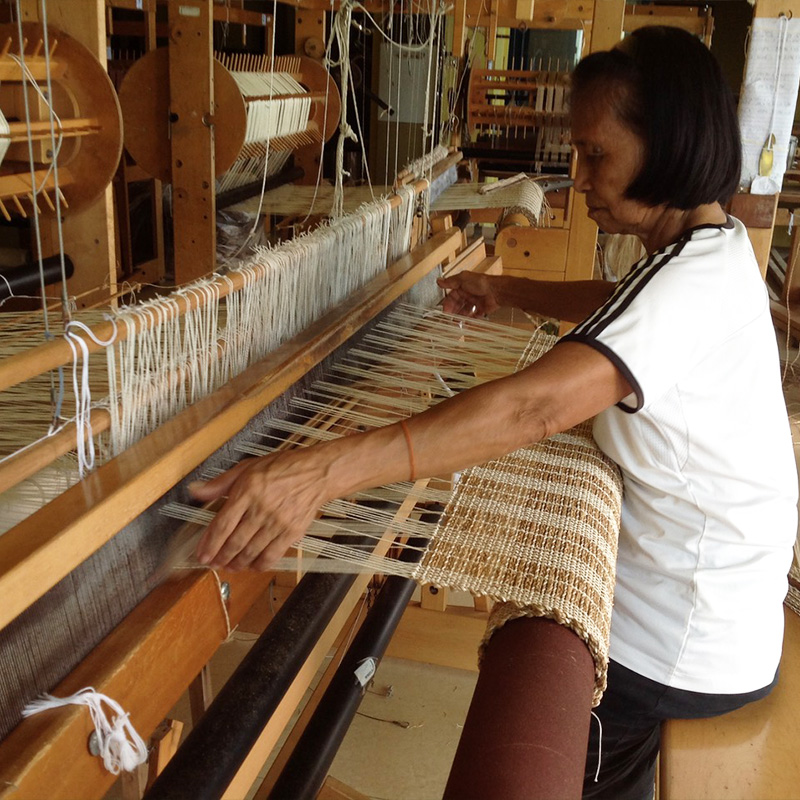
Our abaca products are produced by a community in a remote part of The Philippines. The workshop lies in the foothills of a perfectly shaped, conical, live volcano. Because the volcano is live, the soil in the surrounding area is incredibly rich in nutrients and the abaca plant grows naturally in abundance. Abaca is a relation of the banana plant and is indigenous to The Philippines. Indeed, it is sometime called Manila Hemp.
The fibres used to make the wallcoverings, rugs and sunshades are taken from the trunk of the plant. The centre is fine and almost white and as one comes further out towards bark, the fibres become steadily darker and courser. The plant is harvested by machete – no machinery. The fibres are hand sorted into three different bales – fine, medium and coarse. The fine white fibres are used for a number of our wallcoverings and the finer sunshades, the medium for other wallcoverings and the heavier sunshades. The coarse fibre is used for the rugs.
All products are woven on hand operated, wooden looms, hand operated shuttlecocks and bamboo foot pedals. There is neither electricity nor fuel used in the weaving process. Therefore, up to the point of collection, there is a carbon footprint of zero.
Abaca is a wonderful fibre. It is considerably more durable than sisal but quite soft in feel. Unlike sisal, it can get wet without damaging it. We have a number of customers who have used our wallcoverings in bathrooms. We have other customers who, in warmer climates than here in the UK, have used our sunshades in covered outdoors situations and the rugs in beach houses.


Back to Journal